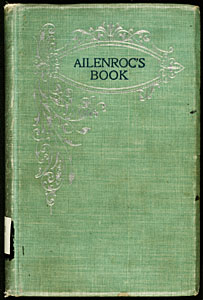One thing I didn’t do much of at college was free reading. And while I would gladly attribute this to my all-consuming studies, the truth is that one will find time for what one loves to do, and I am sure that I could have read more if I had really wanted to.
But now is the summer, and a chance for me to catch up on my reading. Following you will find the various books that I am reading at the moment.
The Geography of Thought – How Asians and Westerners Think Differently…and Why, by Richard Nisbett. This book is very interesting so far. Last fall I wrote a research paper and did a presentation on the history of the linguistic relativity theory, and this reminded a friend of mine of this book, which he then allowed me to borrow. Both this book and my research involved the idea of different world-views—not as religious mindsets, but simply different ways of perceiving and categorizing the world—and this is quite fascinating.
The Legend of Britomartis (Third Book of The Faerie Queene), by Edmund Spenser. I have been slowly working through this great magnum opus of Spenser’s, and despite the archaic language and spelling, the poetry is quite good and I have enjoyed acquainting myself with fantasy from the time of the Renaissance. Each book of The Faerie Queene demonstrates a certain virtue, and this particular book is on chastity. It is interesting to note that the hero of the story is actually a heroine–something that is somewhat unexpected in a work this old.
The Children of Húrin, by J.R.R. Tolkien. This is yet another posthumously published work of Tolkien’s, which his son has put together from his writings. I read somewhere that about 30% of the text of this book has never before been published, while the rest may be found in The Silmarillion and Unfinished Tales. I have only read a little so far, but this is evident since I have read both of these works. The Children of Húrin contains the tragic tale of Túrin Turambar, which I highly recommend despite its less-than-happy ending. It somewhat reminds me of Œdipus. But even if you have already read the Narn i Chîn Húrin, you may still enjoy this volume for the fine illustrations by Alan Lee.
 A few years back, my sister and I were looking through some of our grandmother’s books in a back bedroom when we came across one with a curious title. The words Ailenroc’s Book grabbed our attention, and as we gingerly opened the frail green volume we soon discovered who Ailenroc was. She wrote in the short preface “I do not think I shall live to see [this book] out, but I want to bespeak for it a kind reception. Of faults it has many; but I am sure they are not of the heart, and it is a pleasure to me to think that I have written nothing that can do harm.” Ailenroc, or more properly, Cornelia Alexander, was an elderly Christian lady of Alabama.
A few years back, my sister and I were looking through some of our grandmother’s books in a back bedroom when we came across one with a curious title. The words Ailenroc’s Book grabbed our attention, and as we gingerly opened the frail green volume we soon discovered who Ailenroc was. She wrote in the short preface “I do not think I shall live to see [this book] out, but I want to bespeak for it a kind reception. Of faults it has many; but I am sure they are not of the heart, and it is a pleasure to me to think that I have written nothing that can do harm.” Ailenroc, or more properly, Cornelia Alexander, was an elderly Christian lady of Alabama. 